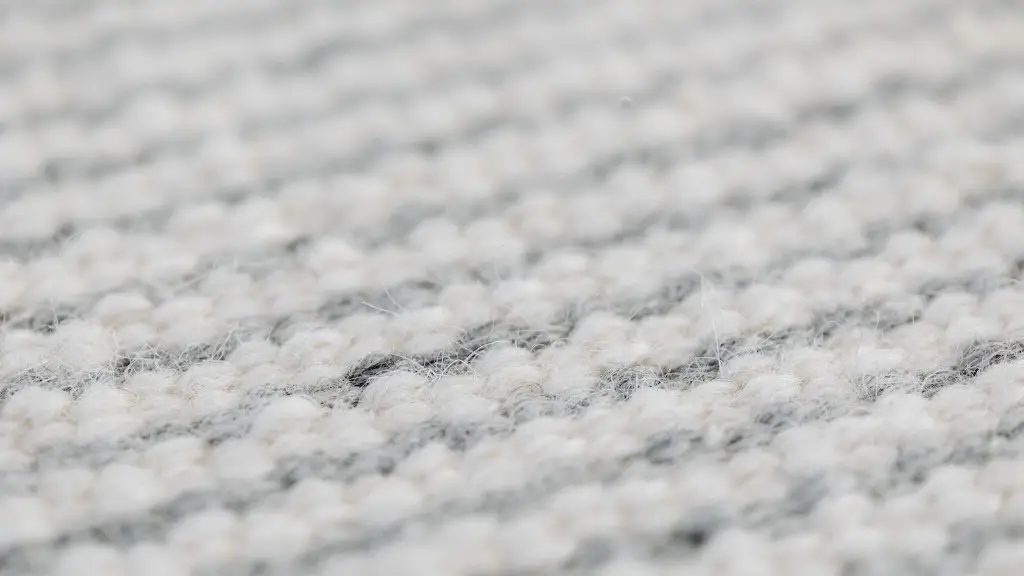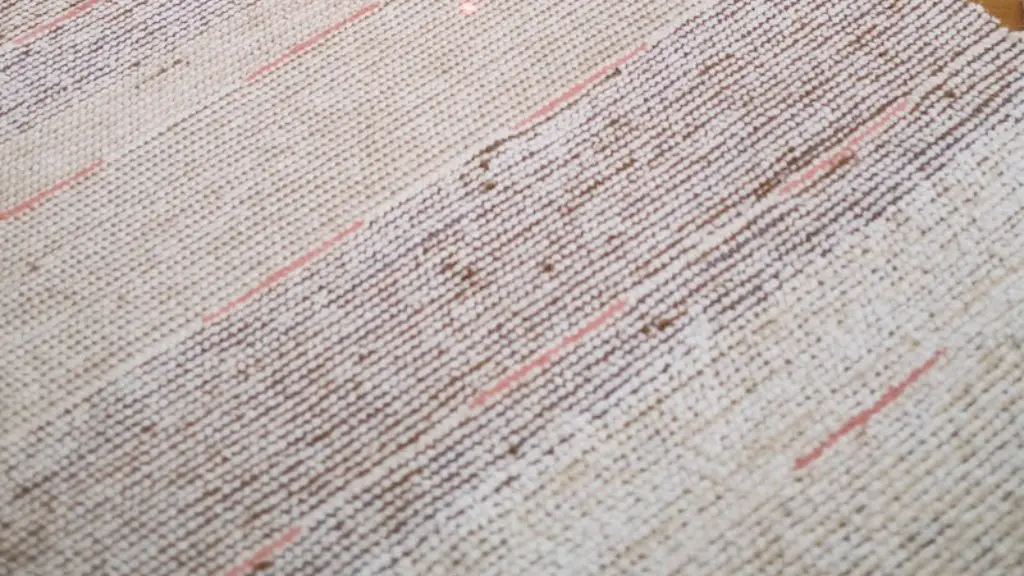If you’ve ever removed commercial carpeting, you know that the glue can be a real pain to get rid of. If you’re stuck with commercial carpet glue on your concrete, there are a few things you can do to get rid of it. With a little elbow grease, you can remove the glue and get your concrete looking like new again.
There are a few ways that you can remove commercial carpet glue from concrete. One way is to use a chemical stripper. This will help to break down the glue and make it easier to remove. Another way is to use a sander or grinder to remove the glue. This will take some time and effort but it will eventually come off.
How do you remove industrial glue from concrete?
If you’re looking to remove adhesive from a floor quickly and thoroughly, carbide or diamond pads are your best bet. Be sure to grind the entire surface to ensure that all the adhesive is removed and the floor is even.
If you need to remove floor adhesive, there are a few things you can do. First, apply a generous amount of Goo Gone to the adhesive. Let it sit for a few minutes so that the formula can soak in. Then, use a putty knife to start pulling off the adhesive. If there is any adhesive remaining, repeat steps 1-3. Finally, wash the area with soap and water.
How do you remove commercial carpet from a concrete floor
Cut an approximate two to three feet strip with a utility knife to scrape the carpet with a floor scraper.
If you have glue residue on your concrete after it cures, there are a few things you can do to remove it. First, you’ll want to select a well-ventilated area to work in and put on some protective gloves and goggles. Next, you can scrape or sand the dried adhesive with a hand scraper or sandpaper. Finally, sweep up and dispose of the residue.
What will dissolve carpet glue?
You just need water and soap to clean most surfaces. Just mix some boiling water and washing-up liquid and pour it over the area that needs to be cleaned. Leave it to absorb for a little while and then scrub away the residues with a scouring sponge. Finally, dry the surface properly.
If you have glue on an unpainted surface that you need to remove, acetone or rubbing alcohol can be used to dissolve the glue. Simply dampen a rag with the chosen solvent and scrub at the residue until it comes off.
Can you use Goo Gone on concrete?
Sealing your concrete or cement floor or countertop will help to protect it from dirt, spills, and other damage. If it has been sealed in the past year, it should be safe to clean with a mild soap and water.
Oil and alcohol are both effective at breaking down residue and making it easy to wipe away. Spread either one on the area and let it sit for about an hour before wiping it clean. For tough residue, you may need to repeat the process.
Does WD-40 Remove floor adhesive
If you drop some glue on the floor or bench, spray a little WD-40 and it will help to loosen the hold of the adhesive. You’ll be able to wipe the glue right off your bench surface.
The WerkMaster Titan XT Propane is the ideal machine for projects where power is not available. It is a 7-in-1 machine that can be used as a grinder, stripper, sander, buffer, burnisher, polisher, and edger. It can remove thinset, epoxy, glue, paint, mastic, and micro toppings, and works on spalled or rained out concrete.
What is the easiest way to remove glued carpet?
This is a carpet puller made by Taylor. It’s designed to help you move heavy carpets or rugs with ease. Simply place the carpet puller over the edge of the carpet and use the levers to lift and move the carpet.
The cost of removing glued-down carpet will depend on the size of the room and the contractor you hire. Expect to pay between $3 and $5 per square yard, or $0.33 to $0.56 per square foot. After cutting the carpet to remove it, a professional will use various techniques to remove the glue from the floor. This may include using a solvent or a power washer. Once the glue is removed, the floor will need to be cleaned and prepared for new flooring.
Does Dawn dish soap remove adhesive
Hot water and dish soap is a great way to remove stickers and adhesive. Simply add a few drops of dish soap to hot water and soak the glass item for a few minutes. The sticker will soften and you will be able to scrape it away easily with a plastic scraper.
If you have a glue stain on your concrete surface, you can try using acetone or white spirit to remove it. Apply a small amount of the solvent to the stain and use a cloth soaked in the solvent to scrub the stain. Once the stain is gone, be sure to clean up the solvent so it doesn’t damage the concrete.
Does WD 40 remove cement?
As opposed to most household ingredients, WD-40 Multi Use Product helps you get rid of cement stains without the need for making multiple attempts. It has a unique formula that helps to break down the cement and make it easier to remove. It also helps to protect the paintwork from further damage.
To remove stubborn glue from the floor, first boil enough water using a large pot. Then, pour the hot water on the patches of glue and leave the water to stay for about 2 minutes to soak and soften the adhesive. Use of hot water is worth tying as it is the cheapest means of removing glue from the floor surface.
Warp Up
There are a few ways to remove commercial carpet glue from concrete. One way is to use a chemical stripper. This will dissolve the glue and make it easy to remove. Another way is to use a heat gun. This will soften the glue and make it easy to scrape off.
If you need to remove commercial carpet glue from concrete, there are a few things you can do. One is to use a heat gun to soften the glue so you can scrap it off. Another is to use a solvent-based adhesive remover. You can also try a product like Goo Gone.





